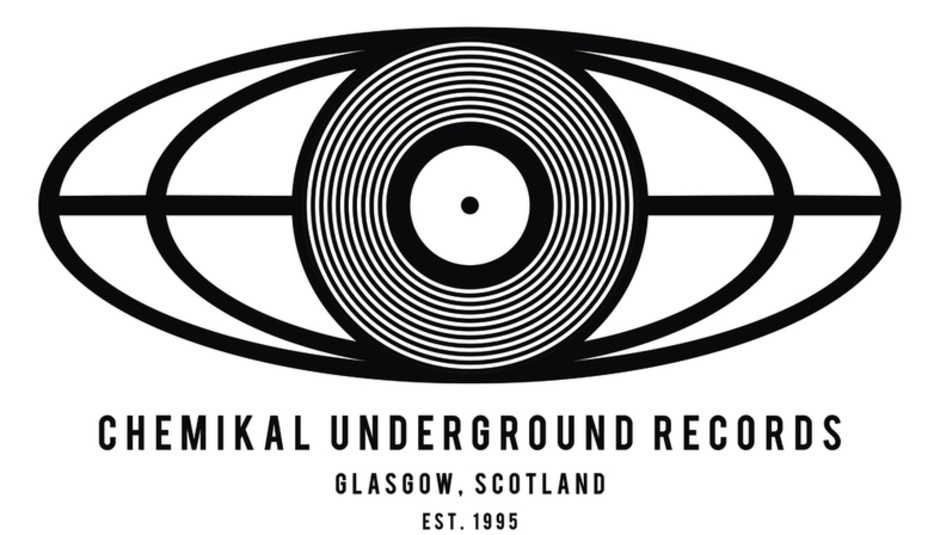Ask anyone involved in the Scottish music scene what the foremost label in the country has been over the last decade and they’ll all give you the same answer: Chemikal Underground.
Spawned by members of seminal Glasgow outfit The Delgados, Chemikal was initially used as a platform to release the band’s music without having to shuffle up the music industry’s schmoozing step-ladder. Since then, Chemikal’s grown as a stable for some of Scotland’s most esteemed artists, including Aereogramme, Arab Strap, Bis, The Phantom Band and, most perhaps most significantly, Mogwai.
To find out a little more about the label’s role in the Glasgow music scene, we spoke label foreman and ex-Delgados bassist Stewart Henderson who fills us in on the label’s evolution and what its future may hold...
DiS: Chemikal Underground has been on the go since 1995, making it five years older than DiS. When you set it up did you ever expect it to be as long-lasting (even outlasting the Delgados) and successful as it is?
To be honest we had no 'master plan' for Chemikal Underground when we started, shy of thinking up a name, printing letterheads and trying to get a distribution deal. Even though we didn't really have a clue what we were doing, we did have a 'how hard can it be?' mentality, a feeling that we knew what was good and what wasn't, so why not?
That said, if someone had come up to us then and told us we'd still be going 15 years later, having had the success that we've had, we'd probably have let them buy us a pint and then told them to fuck off...
Many strong labels have come and gone during that time. What is it that makes Chemikal stand strong?
Our bands and, in particular, our earliest signings, notably Mogwai. I think Chemikal got in 'under the wire' if you like: we started out at a time when music was still driven by physical, high street retail and with bands like Mogwai, Arab Strap and The Delgados (not forgetting the catalyst of Bis' 'Kandy Pop' which effectively started it all) selling what - by today's standards - was a lot of records, we established a foundation for ourselves that's been hard to shake.
Smaller labels like us, that have strong catalogue titles like Young Team and Philophobia, can be more flexible too: it's been easier for us to cut back and not fall into the trap of throwing money at things because we've never had it to throw in the first place. We've been lucky with the bands that have came our way over the years, Glasgow's a great city and a tremendous place to be running a label because of the strength of talent that seems to just keep coming through.
Having worked with Mogwai, Arab Strap, including Aidan and Malcolm's solo stuff, Aereogramme, The Phantom Band and now FOUND, we've been connected with some of the most talented and influential acts of the last 10, 15 years and that has to involve luck as well as judgement. And a lot of hard work too, if the truth be told.
It's not been a constant upward trajectory for us though, and we'd be the first to admit that. It's difficult, almost impossible, to have every record sell well and appeal to a lot of people: some records connect and some don't but what's crucial is that we've loved every album we've ever released - we don't throw out 20 albums a year, so you've got to be selective and stay true to what you believe in. If some people don't like some of our albums, well that's unfortunate - they'll realise they were wrong eventually.
What was the Glasgow music scene like at the time?
There was a lot going on at the time, a lot of the bands were starting labels or writing fanzines etc. from Bis to Urusei Yatsura, Yummy Fur, Lungleg, Pink Kross, The Karelia. Bands were hanging out at 13th Note and Nice N' Sleazy's [two now renowned Glasgow venues] and there seemed to be a pretty good feeling between most of them.
In a lot of respects Glasgow was emerging from the Teenage Fanclub, Captain America, BMX Bandits thing that had had such a big impact - the whole Creation phenomenon - and a lot of bands saw a much more DIY, underground approach as a way forward.
So was Chemikal a reaction to what was going on in the city?
I don't think Chemikal was a reaction to anything really, just that we really couldn't be fucked sending Delgados demos out to all and sundry and thought that, if we could start our own label, there were enough good bands around Glasgow we could sign to try and make a fist of it.
How does Chemikal sit in Glasgow now?
We've survived, we're still going and we've put out a lot of great records so we're recognised for that, I suppose. We're probably perceived as being part of the fabric of the city's music scene now, having been around so long and I think that's a good thing: survival is important because what's the point in having success with a label if it goes tits up after three years?
Postcard was great, but it was short lived: Glasgow, and Scotland in general, needs labels like us to endure, to show we can establish ourselves long-term and keep producing music that we, and hopefully other people, can connect with and be proud of. If we can do it then other people can - I'm certainly not saying that we should be role models for anyone but if nothing else, we're proof it can be done and hopefully new labels will come along and do it better than us, take things forward. I wouldn't envy them though because I think it's harder to establish a new label now than it was when we started.
Are you still heavily involved in what’s going on locally?
Because there are only a couple of us running the label, we're not out at gigs every night of the week and we don't sign loads of bands, which may be a source of frustration for some but it's the only way we can make things work with the resources we have. In a perfect world we'd sign more new bands but the fact of the matter is that the riskiest thing a label can take on at the moment is a brand new band with no track record or sales history - it's shite, I know, but it's a fact.
In the internet age, record labels have had to change substantially to survive. How has Chemikal evolved since its set up?
We've probably come full circle. At the start, the label was all about communication with fans, with the people that bought our records and supported what we were doing. For a while, the label was driven by marketing, posters, ads in magazines, etc, when we had big albums to sell and we [The Delgados] were out on the road a lot.
Now, we've started to focus more on word of mouth again, mailouts, our online shop - customer service basically. A label like Chemikal has to be about customer service though; it's about making the people who buy our music feel part of what we're doing, recognising that we're enthusiasts just like them and that we're not trying to take the piss.
The internet's changed everything of course, but smaller labels like Chemikal are protected to a degree by our lack of extravagance. It's harder than it's ever been to sell a lot of records, but it's also easier than ever to reach a lot of people for not a lot of money. If you release good records then word gets out, people talk and bloggers blog and that's how we achieve our sales - The Phantom Band's debut being a case in point).
It might sound like I'm brown-nosing here, but sites like DiS and the communities of music fans that discuss/debate/argue/fight about the music you highlight are vital to the industry now. It helps to strengthen the belief that music is important, in all its forms, and without that then labels like Chemikal and the artists it works with, would be truly up shit creek.
I also think it's more important than ever for bands to work hard promoting themselves after they've signed to the label. It's a partnership and we can't be expected to do everything for them, especially now when so much of a band's profile is dependent on how they build-up support through Facebook, Twitter etc. I'm glad The Delgados wrapped it a while back because we fucking hated all that shit.
As a label, what do you think the biggest thing you’ve learned from the last decade has been?
Your next crisis is just around the corner.
Over the years, Chemikal’s been responsible for releasing some of Glasgow's (and Scotland’s) finest alternative music. How do you manage to continuously produce the goods?
Whether we've 'continuously produced the goods' would, I suspect, be a matter of intense debate in some quarters. We have released some great records though, no doubt, and that's exclusively down to the artists. As far as our involvement goes, I suppose it comes down to our taste in music and what appeals to us as individuals.
The Delgados were pretty melodic as a band, so it's no surprise that we signed acts like De Rosa, The Radar Brothers and Zoey Van Goey, but that applies to bands like Mogwai and Aereogramme too. The lack of vocals doesn't change the fact that Mogwai write amazing tunes; Aereogramme's music was incredibly melodic as well. You can apply the same principles to Aidan, Malcolm, Arab Strap, The Phantom Band, Adrian Crowley and FOUND. They just do it in a way that's fresh, authentic and challenging so blame them, not us.
During Chemikal’s and DiS’s lifetime, Glasgow’s been a hotbed of really interesting, and often great, music. Can you put your finger on why that is?
I've been asked this question approximately 2,317 times over the past 15 years and remain unable to provide an answer that isn't almost entirely shit. Glasgow might just be one of those cities that has the right blend of what's needed for people to get together and make good music: colleges, art school, venues, pubs, rehearsals rooms, studios etc. But then again, loads of places have all of those things and aren't as synonymous with good music as Glasgow is, so who knows? ...
So what do you think the challenges Chemikal, and labels across the globe, face in the next decade?
The challenge facing all labels now is how to generate sufficient income from record sales. The finances of a label like Chemikal have been on a knife edge for years, but in the current climate it becomes even more precarious than usual. We're unlikely to be in a position where we can drive sales through marketing and what have you, so we can only spend in relation to what we expect to earn. If sales continue to tumble then that obviously presents us with a host of problems.
They're not insurmountable, however, and I think with strong albums and interesting artists, labels like Chemikal should continue to do well. I think the suggestion that labels are an endangered species is misguided: there will always be a place for record labels because when they do their job right they can offer artists so much more than the commercial release of their record.
What are your ambitions for Chemikal in the future?
To avoid glorious failure and keep building on what we started. I've always been intrigued by the notion of earning the keys to the city too, especially if it means finding a pub that's open at 5am.
Finally, gie’s a tip: What Glasgow band should DiS readers be looking out for over the next year?
I'm bound to say our new signings FOUND, but they're from Edinburgh so does that count?
‘Fraid not Stewart...
I strongly urge people to check out RM Hubbert, if they haven't already, and I have a real soft spot for an unsigned band called Monde Green who have an EP available they recorded at Chem19: you can download it from their Myspace.






















